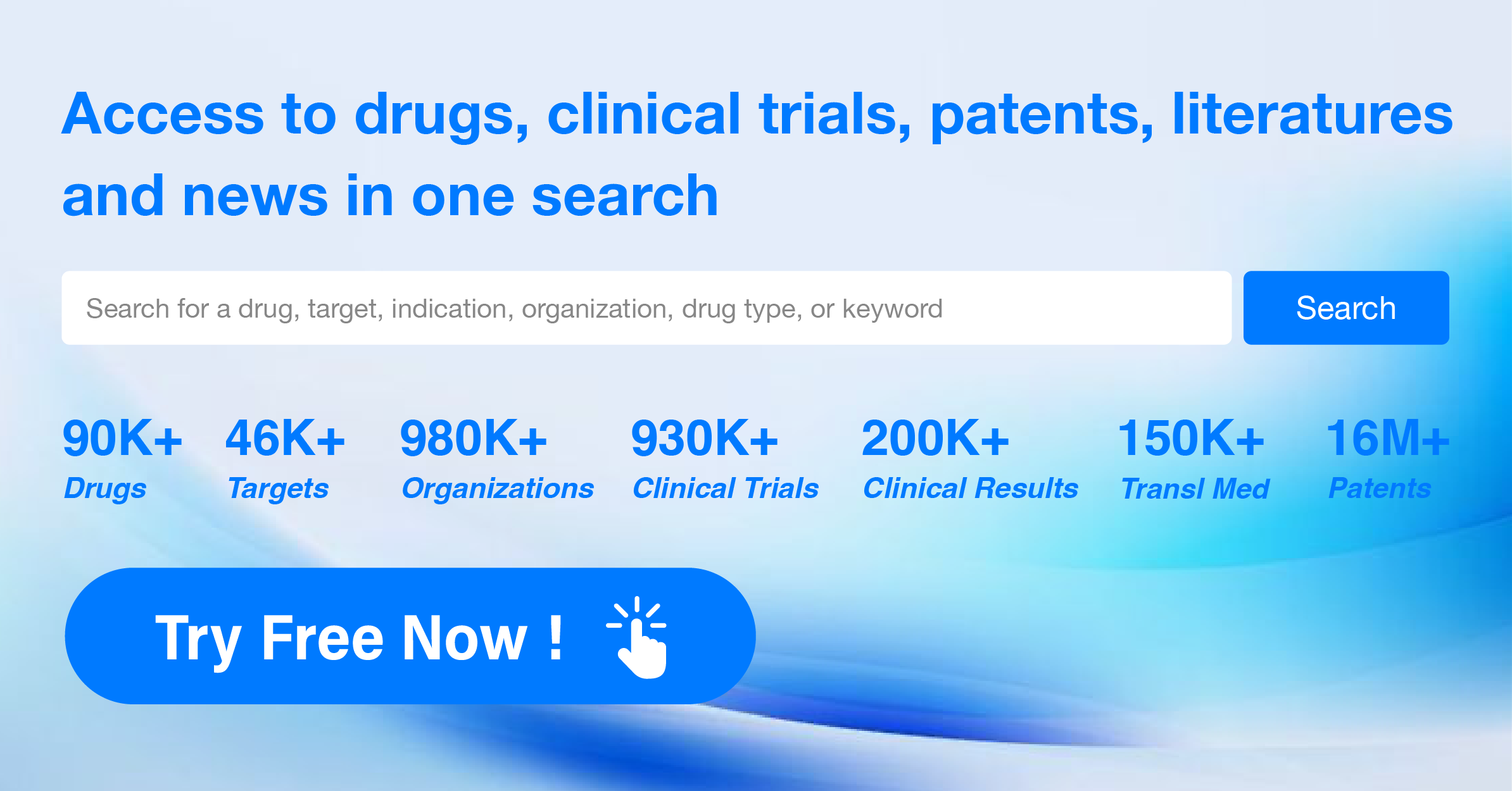Pharma Frontiers: Daily Digest of Global Pharmaceutical News - Jun 25
1.Roche's Innovative Hematologic Oncology Drug Obinutuzumab Short-Duration Infusion Protocol Approved in China
On June 24, Roche announced that the NMPA has officially approved an update to the package insert for its hematologic oncology drug Obinutuzumab injection, adding a 90-minute rapid administration short-duration infusion (SDI) protocol. It is reported that this protocol reduces the single infusion time of Obinutuzumab from the original 3-4 hours to 90 minutes. The SDI can be implemented as early as the second treatment cycle for patients and is expected to become the preferred infusion protocol for patient treatment. The approval of the Obinutuzumab SDI administration protocol was based on the international multicentre Phase IV GAZELLA study. Data indicates that the Obinutuzumab SDI protocol has a good safety profile: during the 2nd cycle SDI, no patients experienced ≥grade 3 infusion-related reactions (IRRs), and in subsequent treatment cycles only one patient experienced a grade 3 IRR, with no cases of grade 4 or 5 IRRs reported. In terms of time, the median infusion duration for the SDI protocol was 95-98 minutes, which significantly reduces the administration time by more than half compared to the 205-269.5 minutes of the standard infusion protocol. In terms of efficacy, the overall response rate (ORR) for the SDI protocol was 86.7%, consistent with the data reported from the Phase III GALLIUM study (88.5%). Another study conducted in domestic hospitals involved 208 patients with advanced non-Hodgkin's lymphoma (NHL), showing that the 90-minute Obinutuzumab SDI was well-tolerated. Among 814 infusions, only 2 incidents (0.25%) of IRRs occurred. This study further confirmed the safety of the Obinutuzumab SDI protocol in Chinese patients.
2.Haisco's class 1 innovative drug, Cofrogliptin tablets, has been approved for marketing to improve blood sugar control
On June 24th, according to the NMPA (National Medical Products Administration) official website, Haisco Pharmaceutical's Class 1 innovative drug Cofrogliptin tablets have been approved for marketing to improve glycemic control in adult patients with type 2 diabetes. Cofrogliptin, a dipeptidyl peptidase-4 (DPP-4) inhibitor, works by inhibiting DPP-4 activity, which increases the plasma concentration of glucagon-like peptide-1 (GLP-1) and glucose-dependent insulinotropic polypeptide (GIP). This enhances insulin release in a glucose-dependent manner and reduces glucagon levels, thereby lowering blood glucose levels.
In a pivotal phase 3 clinical trial (NCT04556851), 475 type 2 diabetes patients with an average baseline glycated hemoglobin (HbA1c) level of 8.1% were enrolled. They were randomly assigned to receive 10 mg or 25 mg of Cofrogliptin or a placebo. After 24 weeks, they entered a 28-week open-label extension period where all received 25 mg of Cofrogliptin. The primary endpoint was the change in HbA1c levels from baseline at 24 weeks. Results showed significant reductions in HbA1c levels by 0.96% and 0.92% in the 10 mg and 25 mg Cofrogliptin treatment groups, respectively, compared to a reduction of 0.33% in the placebo group. At week 24, 44.2% and 44.4% of patients in the 10 mg and 25 mg Cofrogliptin groups, respectively, achieved an HbA1c level below 7.0%, compared to only 20.6% in the placebo group (p<0.0001). During the subsequent open-label extension period (week 24 to week 52), the reduction in HbA1c levels was maintained in patients switched from 10 mg to 25 mg of Cofrogliptin and in those who continued with the 25 mg dose.
Throughout the study period, the incidence rates of hypoglycemic events and adverse events were similar between the Cofrogliptin treatment groups and the placebo group, indicating good tolerability and safety of Cofrogliptin.
3.Bristol Myers Squibb's Prominent KRAS G12C Inhibitor, Krazati, Receives Another FDA Approval
Recently, the United States FDA website displayed that Bristol Myers Squibb’s prominent KRAS G12C inhibitor, Krazati (adagrasib), has been granted another accelerated approval. It is approved in combination with cetuximab for the treatment of adult patients with locally advanced or metastatic colorectal cancer (CRC) harboring a KRAS G12C mutation, as determined by an FDA-approved test. These patients have previously undergone chemotherapy based on fluoropyrimidine, oxaliplatin, and irinotecan. The submission was primarily based on the results from the KRYSTAL-1 study, a multi-cohort clinical trial evaluating the efficacy and safety of Krazati either as a monotherapy or in combination with other anticancer therapies for treating patients with advanced solid tumors carrying the KRAS G12C mutation. The main endpoint of the trial was the objective response rate, with secondary endpoints including duration of response, progression-free survival (PFS), overall survival (OS), and safety. Data presented at the 2024 American Association for Cancer Research (AACR) annual meeting showed that in patients with locally advanced or metastatic CRC with KRAS G12C mutation, the objective response rate was 34%, the median PFS was 6.9 months (95% CI: 5.7-7.4), and the median OS was 15.9 months (95% CI: 11.8-18.8). The median duration of response was 5.8 months. Disease control was achieved in 85% of patients.
Bristol Myers Squibb recently announced that Krazati, used for treating patients with NSCLC (Non-Small Cell Lung Cancer) harboring KRAS G12C mutations, reached the primary endpoint of PFS in the pivotal Phase 3 KRYSTAL-12 study. Compared to chemotherapy, Krazati reduced the risk of disease progression or death by 42% (HR=0.58, 95% CI: 0.45-0.76; P<0.0001). The median PFS in the Krazati group was 5.5 months versus 3.8 months in the chemotherapy group. Additionally, the objective response rate assessed by the blinded independent review center was also significantly higher than in the chemotherapy group (32% vs. 9%; P<0.0001). No new safety signals were observed with Krazati, and the safety data were consistent with the known safety profile.
4.The FDA approves argenx's new drug Vyvgart Hytrulo for expanded indications to treat CIDP
The FDA has approved argenx's new drug Vyvgart Hytrulo for expanded indications to treat CIDP Recently, argenx announced that the U.S. FDA has approved the expanded indications for Vyvgart Hytrulo for the treatment of adult patients with Chronic Inflammatory Demyelinating Polyneuropathy (CIDP). Vyvgart Hytrulo is a subcutaneous injection therapy that requires only a weekly treatment lasting between 30 to 90 seconds. The press release noted that this is the first new therapy for CIDP to be approved in over 30 years with a clear mechanism of action. It is also the first newly approved neoteric Fc receptor (FcRn) blocker for the treatment of CIDP. The FDA's approval was based on the ADHERE study, data from which showed that 69% (221/322) of patients treated with Vyvgart Hytrulo, regardless of prior treatments, exhibited clinical improvements including in mobility, function, and strength. ADHERE reached its primary endpoint (p<0.0001), with a 61% reduction in the risk of disease relapse compared to placebo (HR: 0.39, 95% CI: 0.25, 0.61). 99% of trial participants opted to participate in the open-label extension study of ADHERE. The safety results are largely consistent with the known safety profile of Vyvgart in previous clinical studies and real-world use. Vyvgart represents a "first-in-class" FcRn-targeting therapy. Its intravenous (IV) formulation was approved in December 2021, becoming the first FDA-approved FcRn blocker. This therapy reduces pathogenic IgG antibodies by blocking the IgG recycling process. The function of the FcRn receptor is to prevent the degradation of IgG, hence by preventing the binding of IgG with FcRn, the treatment leads to faster depletion of IgG antibodies mediating autoimmune diseases, thus alleviating disease symptoms. Vyvgart Hytrulo is a subcutaneous injection product combining Vyvgart with recombinant human hyaluronidase PH20. Developed by Halozyme Therapeutics, recombinant human hyaluronidase PH20 breaks down hyaluronic acid in the body to aid the penetration and absorption of subcutaneously administered drugs, providing patients with additional treatment options.
5.Novo Nordisk Announces Phase III Clinical Results of Hemophilia Bivalent Antibody Drug Mim8
On June 23, Novo Nordisk released detailed results of the Phase III FRONTIER2 trial, which aimed to evaluate the efficacy and safety of once-weekly and once-monthly Mim8 for prophylactic treatment in 254 adolescents and adults aged 12 and above with hemophilia A, with or without inhibitors. Mim8, developed using Genmab's DuoBody technology platform, is a bivalent antibody drug that mimics the action of coagulation factor VIIIa (FVIIIa). Administered via subcutaneous injection, it bridges coagulation factor IXa (FIXa) and coagulation factor X (FX), effectively substituting for FVIII. Its coagulation activity is approximately 15 times that of emicizumab.
In the cohort of patients who had never received prophylactic treatment, Mim8 significantly reduced bleeding rates. Weekly and monthly treatments with Mim8 reduced the estimated annual bleeding rate (ABR) by 97.1% and 98.7%, respectively. Both weekly and monthly prophylactic treatments with Mim8 significantly reduced the volume of bleeding episodes, with 85.7% of the weekly treatment group and 95.0% of the monthly treatment group observed to have zero bleeds.
Among those who had previously received factor prophylaxis, Mim8 demonstrated excellent performance in reducing bleeding. Weekly and monthly treatments reduced average ABR by 48% and 42.6%, respectively, and were more effective in reducing treatment-related bleeding compared to previous factor prophylactic treatments. Zero bleeds were observed in 66.3% of the weekly group and 65.3% of the monthly group.Mim8 was well-tolerated with no safety concerns (thromboembolic events or related serious adverse events), consistent with previous study findings.
6.Vertex Announces Latest Data from Phase 1/2 Clinical Trial of Investigational Cell Therapy VX-880
Recently, Vertex Pharmaceuticals released the latest data from the Phase 1/2 clinical trial of their investigational cell therapy VX-880. Analysis indicated that within 90 days following a single full-dose infusion of VX-880, all patients with Type 1 Diabetes (T1D) displayed successful pancreatic islet transplantation and insulin production in response to glucose. At the last follow-up, 11 out of 12 patients had either reduced or discontinued the use of exogenous insulin. Vertex plans to increase the number of enrollees and advance this therapy into a pivotal trial phase. Detailed data was presented at the Annual Meeting of the American Diabetes Association (ADA).
This reported clinical trial is a Phase 1/2, multicenter, single-group, open-label study conducted among T1D patients with impaired hypoglycemia awareness and severe hypoglycemia (SHE). Analysis showed that all 12 patients demonstrated successful pancreatic islet transplantation and insulin production in response to glucose within 90 days post a single full-dose VX-880 infusion. At the last follow-up, all patients showed improved glycemic control, achieving an ADA-recommended glycated hemoglobin (HbA1c) level below 7.0 percent, and over 70% of time in normoglycemia during continuous glucose monitoring. Nearly all participants (n=11/12, 91.7%) reduced or stopped the use of exogenous insulin. No occurrences of SHE were observed from day 90 of the assessment period onwards. Additionally, all three patients who received at least one year of follow-up (evaluable patients) met the primary endpoint, which was the elimination of SHE starting from day 90 post-infusion and an HbA1c level below 7.0 percent. These patients also met the secondary endpoint of achieving insulin independence.
Based on these positive results, Vertex has decided to expand the trial to recruit approximately 37 patients. VX-880 was generally well tolerated. Most adverse events (AEs) were mild or moderate, with no serious adverse events related to VX-880 treatment.
7.Danatlas Pharmaceuticals' PARG inhibitor, DAT-2645 tablets, have been approved for clinical trials in the United States
On June 24th, Danatlas Pharmaceuticals announced that its New Drug Clinical Trial Application (IND) for the PARG inhibitor DAT-2645 tablets has recently been approved by the U.S. FDA. Danatlas Pharmaceuticals will conduct a multicenter, open-label, dose-escalation and dose-expansion Phase 1 clinical trial in both China and the U.S. Starting the second half of 2023, patient enrollment for the clinical trials will commence, aimed at evaluating the safety and efficacy of DAT-2645 as a monotherapy for patients with advanced or metastatic solid tumors carrying BRCA1/2 functional loss mutations and/or Homologous Recombination Deficiency (HRD).
Poly(ADP-ribose) glycohydrolase (PARG), along with poly(ADP-ribose) polymerase (PARP), operates within the same signaling pathway, playing a critical role in the DNA damage response and DNA replication processes. DAT-2645 is a novel, highly selective, orally administered small molecule PARG inhibitor developed by Danatlas Pharmaceuticals. According to a press release from Danatlas Pharmaceuticals, DAT-2645 targets tumor cells carrying specific DNA repair deficiencies through a mechanism of synthetic lethality. Its indications include various common cancers such as breast, ovarian, pancreatic, prostate, endometrial, gastric, and colorectal cancers. Moreover, it has the potential to extend applications to conditions where PARP inhibitors are ineffective and address resistance issues associated with PARP inhibitors, thus showing prospective broad-spectrum clinical applications. To date, no PARG inhibitors have been approved for marketing worldwide.
8.iRegene Therapeutics’ Cell Therapy Product NouvNeu001 Receives FDA Approval for Clinical Trial
On June 24th, iRegene Therapeutics announced that the US FDA had officially approved the IND application for their Parkinson's pipeline, NouvNeu001, on June 20th local time. NouvNeu001 is a chemically induced universal cell therapy product. Its Phase 1/2 clinical study was approved by China's NMPA in August 2023, and it has demonstrated positive safety and efficacy data in the Phase 1 clinical trial. Notably, in March 2024, the FDA granted a Breakthrough Therapy Designation to iRegene Therapeutics for NouvNeu001. This product, which is based on chemically induced universal cell therapy, achieves high-purity neuronal subtype reconstruction and functional optimization through compound modulation. It connects with existing neurons in the body, enhances cellular secretory functions, and strengthens the transplanted cells’ ability to improve original lesion sites, thus achieving a comprehensive therapeutic effect. At the beginning of 2025, clinical trials for NouvNeu001 were smoothly initiated. By integrating the clinical resources of neurosurgery, neurology, and other departments, researchers will systematically evaluate the safety, tolerability, and efficacy of stereotactic bilateral intracranial injections of NouvNeu001 for treating advanced-stage Parkinson's disease. Currently, this clinical project is in an accelerated phase. Based on numerous independent clinical results from multiple centers, treatment with NouvNeu001 not only rapidly and significantly improved the MDS-UPDRS scores but also greatly enhanced patients’ quality of life; moreover, it demonstrated good safety with no related adverse reactions. The NouvNeu001 project is set to enter the dose expansion phase soon.
How to obtain the latest research advancements in the field of biopharmaceuticals?
In the Synapse database, you can keep abreast of the latest research and development advances in drugs, targets, indications, organizations, etc., anywhere and anytime, on a daily or weekly basis. Click on the image below to embark on a brand new journey of drug discovery!




